Super User
8 new cases of #COVID19 have been reported in Nigeria; 2 in FCT, 4 in Oyo, 1 in Kaduna and 1 in Osun State.
As at 10:40 pm 28th March there are 97 confirmed cases of #COVID19 reported in Nigeria with 1 death.
As at 10:40 pm 28th March, there are
— NCDC (@NCDCgov) March 28, 2020
97 confirmed cases
1 death
For a breakdown of cases by states in real time, please see https://t.co/zQrpNeOfet
Currently;
Lagos- 59
FCT- 16
Ogun- 3
Enugu- 2
Ekiti- 1
Oyo- 7
Edo- 2
Bauchi- 2
Osun-2
Rivers-1
Benue- 1
Kaduna- 1
Few hours after a lady shared a video she made of a trader soaking mango inside gutter water before selling to people in the Agungi area of Lagos state, authorities stormed the area to arrest to supposed trader(s) who indulged in such act.
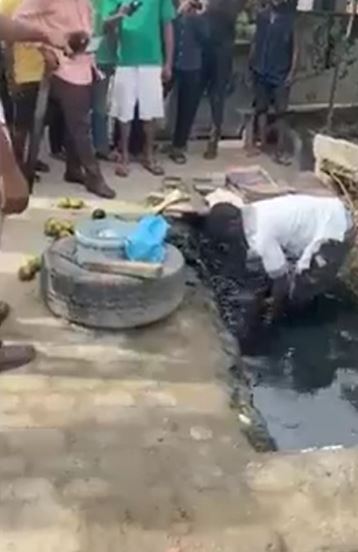
In a recent development, possibly after interrogating the suspects, another video now shows the moment the trader brings out the fruits that were stored in the dirty drainage system in the same area.
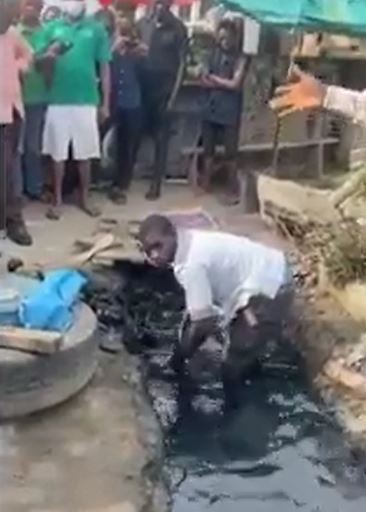
The lady who had initially shared the video after she caught the perpetrators had stated the exact location of the traders and moments later, it was reported that the trader(s) had been arrested over the discovery.
In the new video that’s been making the rounds, an aboki is seen in the same exact location bringing out mango fruits from the dirty gutter as people stood by and watched in utter shock.
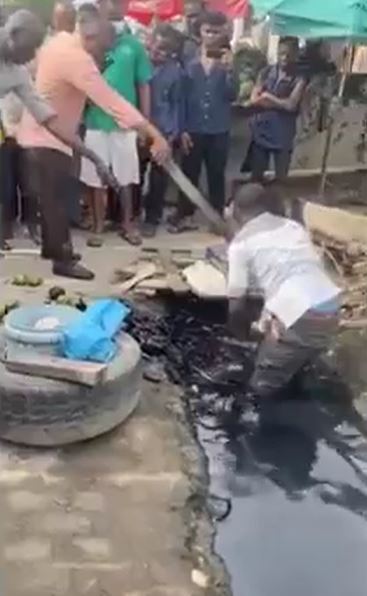
The video has caused Nigerians to be watchful of the street food they buy from these peoples as majority of them practice no form of hygiene and even indulge in despicable acts that’s detrimental to the health of their customers.
Watch the video that has been making the rounds below,
- Moment a trader was ordered to pick out all fruits he kept inside gutter water for preservation before selling to buyers in Agungi, Lekki.
— Postsubman (@Postsubman) March 28, 2020
pic.twitter.com/n4dMRt5EIu
Zainab Ahmed, the minister of finance, budget and national planning, says the federal government is considering giving out stipends to people whose jobs have been affected by the coronavirus outbreak.
Ahmed was speaking on Politics Today, a programme on Channels TV.
“We have a number of fiscal incentives that we have thought through and designed but we have to do a couple of engagements before we announce them because of our fragile fiscal situation,” she said.
“We don’t want to rush and make announcements of tax cuts or tax holidays without looking at the full picture of how it affects the federal government, states and how it affects businesses.
“The government is looking at the possibility of giving out stipends, increasing the stipends that it giving out to the category of Nigerians that are classified as poor and vulnerable.
“Also, we are looking at the category of citizens that have been affected by the nature of their jobs by this pandemic. For example, airports are closed so people who run taxi services at the airport will be at home with nothing to do. So we have to carefully identify the groups that will get these interventions. We are also not forgetting businesses.”
She said the government is still trying to determine the method of disbursing the funds and ensuring maximum impact given Nigeria’s large population.
However, the minister said the economy would enter a recession if the health crisis lasts up to six months.
“Are we broke, no we are not broke. Are we buoyant, we are not buoyant as well. We have resources to manage and we have been able to find new sources of funds to realise very quickly to keep the country stable,” she said.
“Fact is, we are going to struggle in terms of revenue. The federal and state government will be frantically looking for alternative sources of funding in the form of budget support.
“We are hopeful that this pandemic will be limited in time. If it is an average of three months, we should be able to close the year with positive growth. If it goes longer than that, six months, one year, we will go into a recession.”
She said the federal government is already talking with lenders to renegotiate repayment terms and “seek a stay of the debt service to preserve some of the revenue”.
Nigeria’s revenue has taken a hit after crude oil, its major source of income, witnessed a sharp price decline.
TheCable
Nollywood veteran actress, Ngozi Ezeonu, about a month and few weeks ago was in an excited state as her daughter, Oge got married in Asaba, Delta State. See Photos here
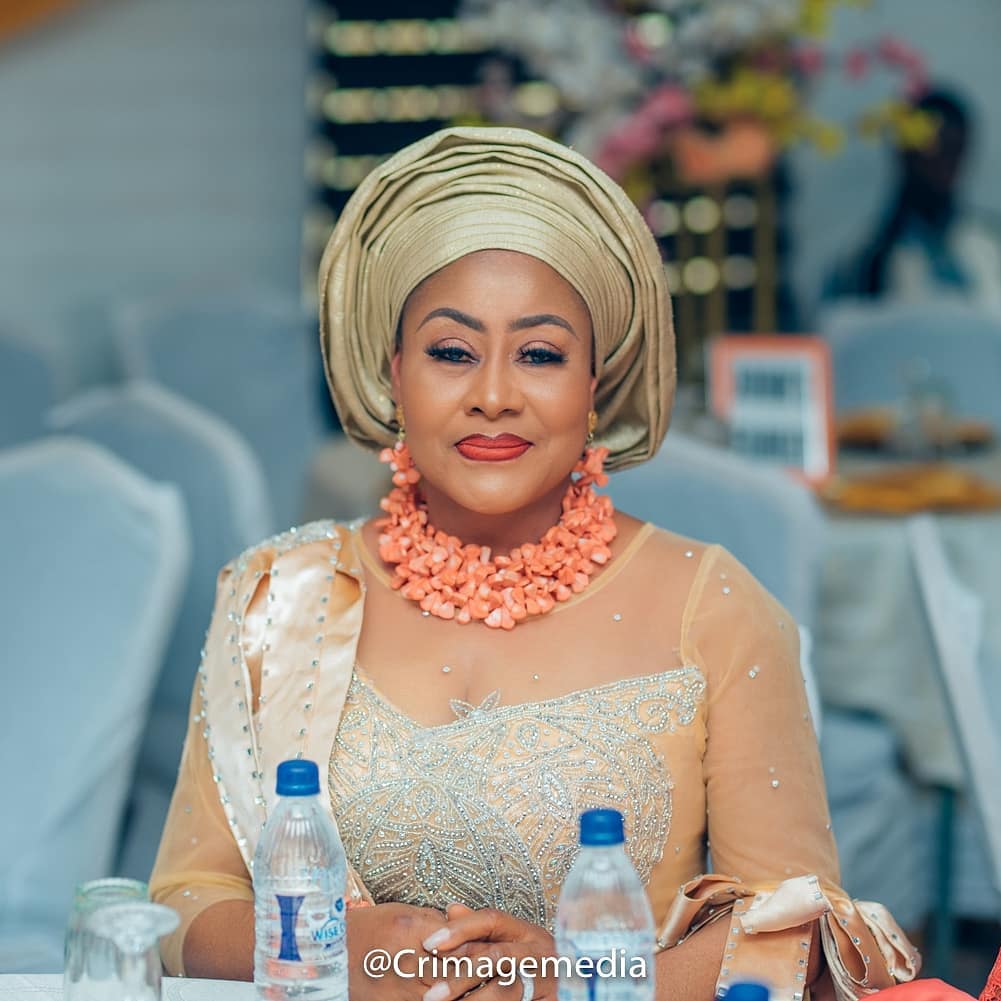
Colleagues and friends took to wishing the actress’s daughter a happy married life and showered blessings on the union but not long after, unfortunately, there was wild controversy caused by the father of the bride.
According to the actress’s ex-husband, Edwin Ezeonu, she married off their daughter without his consent and as such, trampled on his right and honour as a man.
Edwin, who was exasperated by the fact that his daughter got married in Asaba, Delta state not Anambra which is her state of origin, he laid a curse on her new union.
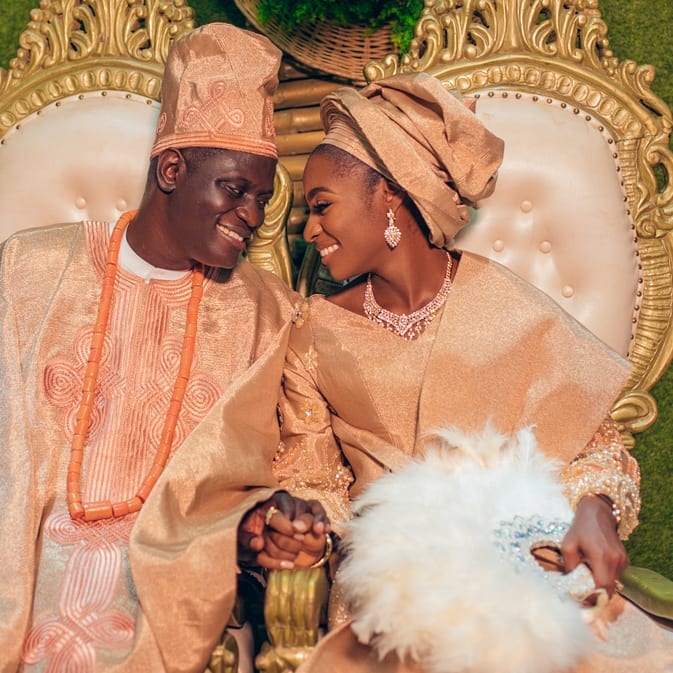
He went to state that he is native of Nnobi while his estranged wife, Ngozi is from Ogbunike, both in Anambra State, yet his daughter’s traditional marriage was held in Delta State, an act seen as abomination in his community.
In his own words,
“I’m the real son of the soil in Igbo land and I am knowledgeable enough to some extent concerning Igbo marriage tradition in Anambra State. In the whole of Anambra State where I belong, a woman does not and has no legitimate right whatsoever to give out a fellow woman’s hand in marriage. It is a abomination and taboo. As such, Ngozi Denis Ikpelue has no legitimate right and authority to give out Ogechukwu Edwina Ezeonu’s hand in marriage. As long as I and the entire family of Ezeonu and his kindred are concerned, Ogechukwu Edwina Ezeonu is not married. That union is cursed. It is a taboo! What happened at Asaba Delta State on the 15th of February 2020 must be a movie shoot,”
Weeks after his ranting, his estranged spouse who had endured the derogatory remarks from users online over her ex-husband’s call out, shared a cryptic message on her Instagram page which reads,
”My Father My Maker, as I pray, anyone that will cause me pain may I not meet them. If they are already in my life, disconnect me from them in Jesus Name. Amen. “
Few hours ago, Nigerian singing sensation, Davido took to all his social media platforms to announce that mother of his child and fiance, Chioma has tested positive to the novel Covid-19 after running tests for the disease.
Perturbed by the message, heartfelt Nigerians and well-wishers stormed the singer’s page to say a word of prayer and hope that his baby mama gets speedy recovery.
Davido, in his message had stated that not only did Chioma do the test for the virus, but every other of his crew including himself and his son, Ifeanyi and all except Chioma tested negative to the virus.

In light of this, fans and followers have pondered about the circumstances surrounding the development and wondered if the singer is pulling a stunt but at what cost and for what gain is what has a handful people in doubts.
While some of his fans continue to put him and his fiance in prayers, others who have found the whole situation sketchy have continued to question Davido’s message and it’s in this vein that a video of the singer partying alongside his fiance at a party just five days ago, emerged.
In the video, Davido is seen in close contact with Chioma as they party alongside other people – obviously, should be the singer’s crew members – and this has caused a stir over the singer’s message few hours ago.
Davido revealed that though, Chioma tested positive to the virus, she however hasn’t shown any symptoms and the same goes for himself… in his own words,
We had no symptoms and still both feel perfectly fine but because of our recent travel history we decided to take ourselves and our all close associates we’ve come in recent contact with for the COVID-19 test on the 25th of March.
Now, in light of the emergence of the video that shows the singer in really close relations to Chioma, Nigerians are finding it hard to believe that his test could have come out negative or whether or not, Chioma is actually positive and if all these is just a mere stunt.
Also, a tweet of photos that shows the singer – few days before his announcement – partying in supposedly the same event has since been deleted on the platform which calls for serious speculations over the possible anomaly of the situation.
The tweet was screenshot before it was deleted and it shows the date which it was published – 23rd of March, 2020. See screenshot below,
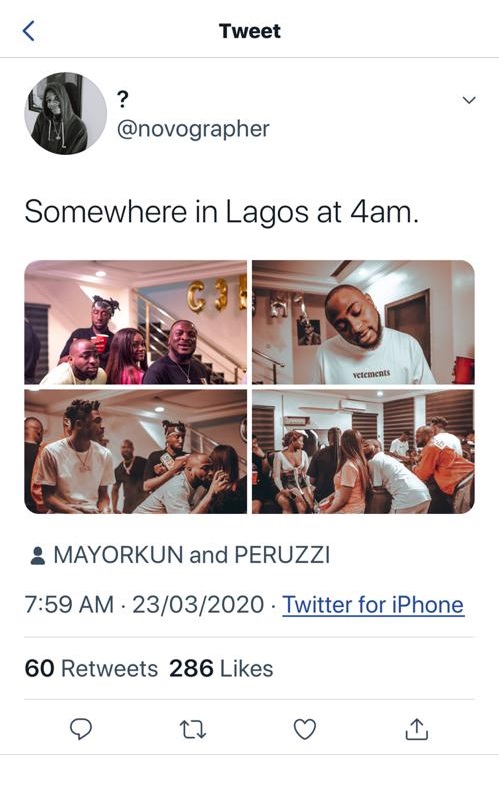
Here are the photos that were uploaded with the tweet and they certainly commensurate the video that was published recently after Davido’s announcement.
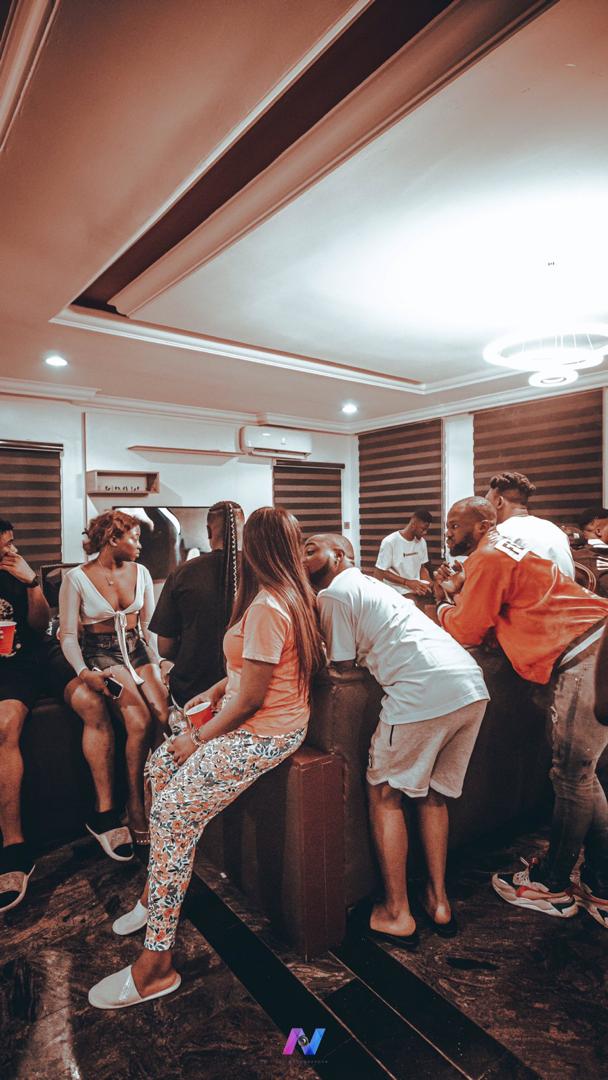
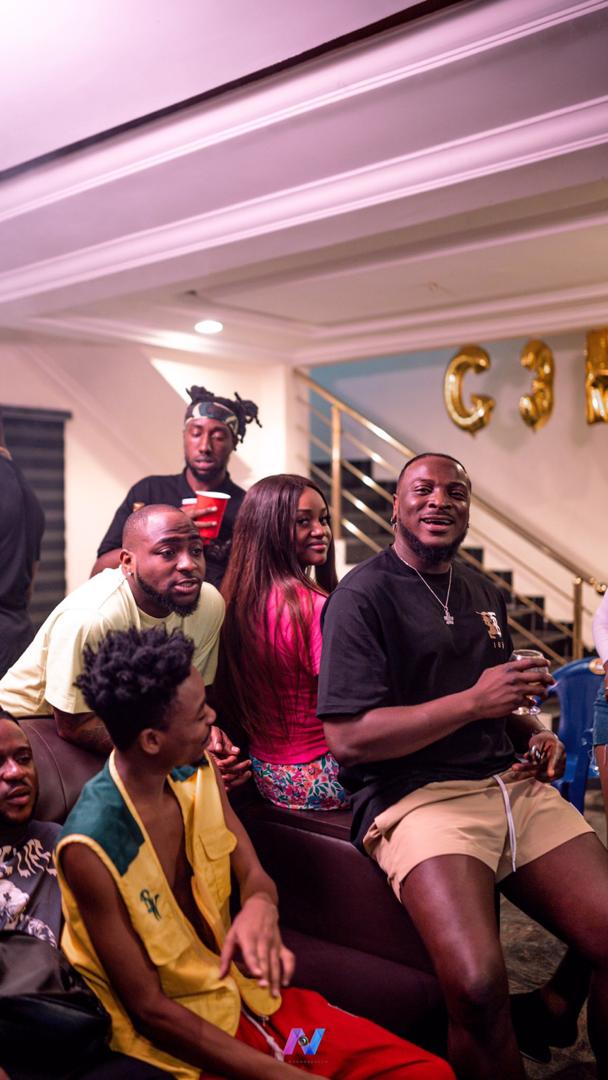
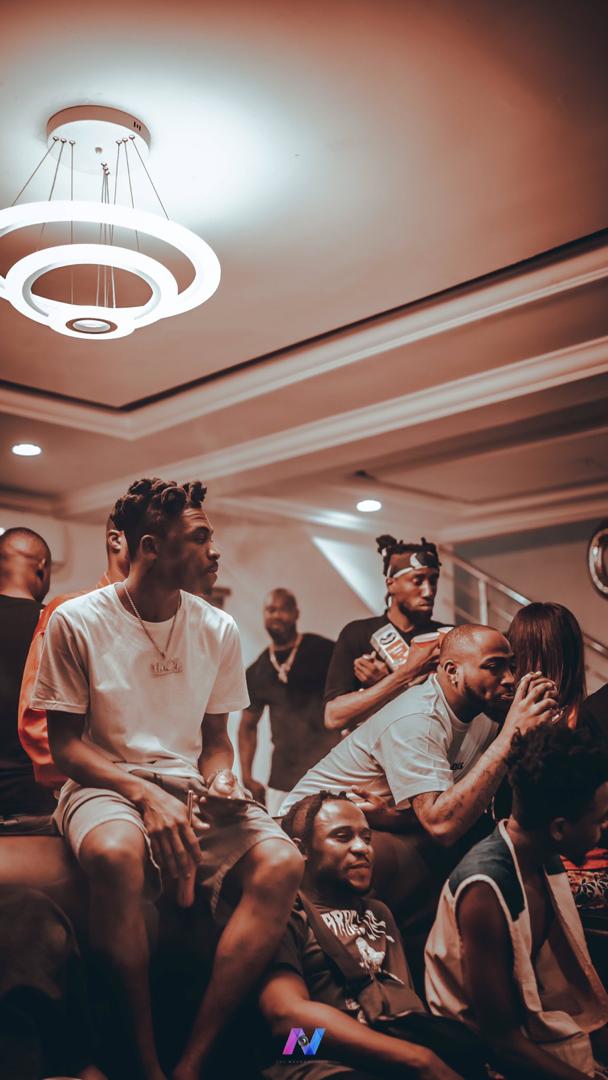
The Italian Association of Doctors have confirmed the death of 51 doctors who all died after testing positive for coronavirus.
The doctors succumbed to the disease as of Friday, according to CNN, citing the Italian Association of Doctors.
The death toll comes after Filippo Anelli, the president of the association, on Thursday called for doctors in the country to be provided with more personal protective equipment (PPE).
"The first thing to do is to protect healthcare workers, to make sure they are not the ones spreading the virus. Our doctors have been sent to war unarmed," Anelli told The Financial Times in a Thursday article. "The dead do not make a noise. Yet, the names of our dead friends, our colleagues, put here in black and white, make a deafening noise."
According to the Italian National Institute of Health, more than 6,000 health workers have been infected by coronavirus as of Thursday,
Italy has the highest COVID-19 death toll of any country in the world, Out of over 86,000 cases of coronavirus in the country as of Friday, there were over 9,100 deaths.
Dr Safiya Mohammed, 66, served as Permanent Secretary in various ministries including the Federal Ministries of Information and National Orientation, and Environment before her retirement in 2009. The two-time Bauchi South Senatorial District aspirant, speaks to ThePunch about her days in the civil service, among others issues
You were born in Bunga in the Dass Local Government Area of Bauchi State, and attended Government Girls Secondary School, Bauchi. Were you a quiet or troublesome child in school?
Frankly, I wouldn’t say I was a quiet person, because I grew up in my community as a tomboy. I was my dad’s only child. In our community in those days, children looked after their families’ livestock together – goats, sheep and so on. We worked as a group and I never allowed any boy to bully me. I fought along with them as a child and didn’t see myself as a girl.
Can you share some of your fondest childhood memories?
As a young child, it was when I left junior primary school to go to a boarding school, which was a senior primary school, that I saw electricity for the first time. That was the first time I saw pipe-borne water. That was when I was brought to Bauchi. I have fond memories of the times I spent with my father. As an only child in the family, I was always by his side; we used to go to his farm together. I had a little hoe I also used and I was the one looking after the livestock at home during the holidays. During school time, once I returned from school, I would follow my father to look after some animals. My father was the Village Head, so I was treated like a little princess and he used to put me on the horse with him whenever he had to travel some distance on horseback. I cherish those moments so much.
What were your aspirations at that time?
I didn’t know what it was to have aspirations but somehow, at age five, I used to see the older boys and girls from my village going to the school in the next village, and I started following them to school even though I hadn’t been enrolled yet. When I heard that they were going to enrol new pupils, so I went with them but I was turned down; they said I was too young and was told to come back the following year.
I remember that first day I was to resume at school, I couldn’t sleep because of the excitement. And because it was a full moon night, when I heard cocks crowing, I thought dawn had broken so I went to the houses of older people already in school then and knocked on their doors so that we could go to school together. Somehow, instead of them to say no, they came out and we went to school when it was still dark. There was a flat rock in front of the school, we laid down there for more than two hours until daybreak.
When it turned out that I would not be enrolled because I was too young, I refused to stay at home, and I kept on going to school day after day. Some days, I would be threatened with the cane that if I came again, they would use it on me, but I never stopped. I would stay at a distance and listen to what was being taught. I did that for three months and in the fourth month, I was enrolled because of an incident. We didn’t even have a classroom then, pupils were taught under a tree.
The teacher was teaching consonants and vowels, how you could make a sound using a consonant and a vowel in Hausa. Although, I was not part of the class, I was following it. The teacher wrote “sa”, “ma”, and “ri”, and asked who could put the words together and pronounce the word but nobody in the class could say it. I raised my hand where I was and the teacher ignored me at first since I was not part of the class. He asked the class again but nobody could say what that was, then he asked me and I said, “Samari” in Hausa, meaning “young man”. “Wow”, the teacher exclaimed, and said, “Clap for her!” He took me to the front of the class and gave me a present – a big magazine. I could hardly pick it up. I got so many presents; that was how I started primary one (laughs).
Did you have any hobbies then?
I did everything every child was doing, I could swim very well. My father had to teach me because we had to cross a river to get to school, so I was a very good swimmer. I could cultivate and I looked after livestock. I played in the village square and did traditional dances. I used to be a great dancer and singer.
How did you become a teacher later?
After my primary education, I went to Women Teachers College, Kano, where I spent five years. As I was going to secondary school, my husband was going to university. We were proceeding with our education at our different levels. It was when I finished at WTC, Kano in 1971 that I was actually married. Immediately, I was taken to my husband’s house and I graduated as a Grade II teacher. I started teaching at Dass Central Primary School while my husband was in medical school. In 1972, we were blessed with our first child; it was during that time that I joined my husband who had finished at medical school and started working as a medical doctor in Zaria (in Kaduna State).
While I was with my husband in Zaria, I used the opportunity to further my education. I went to School for Basic Studies and from there, I proceeded to earn my first degree and graduated in 1978. I read English as my special subject and taught for a while in some secondary schools around Zaria. My husband went to Bauchi for a political appointment and I went with him. I taught at Abubakar Tafawa Balewa University, Bauchi but before then, I was a Vice Principal at the Government Girls Secondary School, Bauchi. At ATBU, I taught English at the Department of Social Sciences. Together, we later went back to Zaria and I earned my master’s degree in 1980 and was employed by Ahmadu Bello University, Zaria. While I was lecturing, I was doing a postgraduate course.
At what point did you move to the Federal civil service?
Then, I did my doctorate and graduated in 1990 and as I was reading, I was also climbing the ladder. I became a senior lecturer at the university and was pulled out by the Bauchi State Government for a political appointment. When I returned to Bauchi, I became a director-general first, then I was asked to look after Education Trust Fund. Then I went to the Ministry of Information, and from there, I went to Women Affairs Commission. While I was there, I was given appointment to become a Director at the Federal Civil Service. When the then First Lady of Nigeria, Mrs Maryam Abacha, came to Bauchi at that time, she saw the projects we were doing for women and was very impressed. In 1995, I was called that I had been appointed as Director, Women Affairs and that I should come immediately as they were proceeding to China; that was on the eve of the trip. We went to China and I was the one that sat on Nigeria’s desk and we negotiated the Beijing Declaration for advancing women’s rights. I was assisted by two senior staff members in the Ministry of Foreign Affairs, one Mr Rundak and Ramatu Ahmed. From there, I became a federal employee. I was a Director for six years after which I was promoted to the position of a Permanent Secretary in 2000.
You are 66 years old now, do you have any regrets in life?
There is nobody on earth that doesn’t have regrets. We are not supposed to enjoy everything; however, I cannot mention any particular regret that I would say I wish didn’t happen.
What has been responsible for your drive in life?
Seeing fellow girls getting education was an eye-opener to me. I went to a boarding school which was for girls only and saw how girls were reading to excel. Even when we got married, my husband said since I was in school, I should wait for him to graduate and I asked him why. I asked, “Why should I wait for you? There are thousands of girls in women teachers’ colleges and all of them want education, and you want me to sit at home, no way!” I told him that I would go to secondary school so that when I graduated, we could start a family together. And when we later started a family, we were in a university environment and I was seeing pregnant women and others with children going for classes. So while I was still studying, I was having children and sometimes dozing in class because of the stress. I just had the zeal to excel like other fellow women.
Women, especially in the North, are often regarded by some as only meant for the home and kitchen (housewives), what challenges did you face?
God enabled me to marry an enlightened person, even though at the time, we never knew he was going to be a medical doctor. We never knew I was going to be a graduate. We were just two people in love and we felt education was something to be pursued. It has so many advantages beyond just learning A, B, and C. We knew that women were not meant for the kitchen alone because women have the same brain capacity as men. And we knew that education should not stop women from having a family. In fact, it makes it possible for a woman to have a better family. So, we chose to move along that path so we could have a better family.
What kind of experience did you have in the places that you worked?
I gain a lot. People I worked with called me “workaholic”. There were ministers that fought to get me to work in their ministries. According to them, when I wrote memos, they didn’t have to add any dot because it would be perfect. You know, the ministers and permanent secretaries had to present papers abroad, so we, as directors, had to prepare everything. I did everything meticulously.
What would you say were the most difficult decisions you had to make while serving as a Permanent Secretary?
You would face such when a minister desired that a certain action should be taken, which you knew was against civil service rules. That is when there will be sour relationships between ministers and permanent secretaries. When you try to tell a minister that this cannot be done because the civil service rule says this, there will be issue. In fact, one of such decisions that I can remember that really gave me a tough time and went up to the level of the Presidency was when the present Governor of Kaduna State, Nasir el-Rufai, was in the Bureau of Public Enterprises and was selling government properties. When they wanted to sell Daily Times and New Nigerian Newspaper, and (the then Vice President, Alhaji Abubakar) Atiku wanted to buy the two, I said to my minister, “No, you cannot sell New Nigerian Newspaper because it belongs to the nine northern states and the Daily Times belongs to some other states in the South.” I told him that there was a White Paper on them. I brought out the evidence and told him the reasons why they could not be sold.
And what did the minister do?
I told the minister to tell the President that this (sale of the two media organisations) could not happen. The minister (of information) then was Prof Jerry Gana and he didn’t want to have problems with the Presidency, so when I wrote the memo for him to sign, he said, “No Perm. Sec., you put your name there and sign it.” (Laughs) I asked him, “But why? It is you that is going to…” He said no and that it was a directive. He said I shouldn’t mention his name there. And innocently, I wrote to Mr President. I gave all the information. I added attachments and sent to Mr President. It was (Olusegun) Obasanjo that was the President and he minuted the Vice President that those two newspapers could not be sold because of certain reasons and he quoted what I quoted. The Vice President wrote back to the President, saying, “I know that there is somebody somewhere who doesn’t want me to but these two companies.” He said something contrary to what the President wrote and the President said: “To the best of my knowledge, there is nobody anywhere and this will not be sold, period!” They were writing to each other.
One Umar Faruk was the Managing Director of New Nigerian Newspaper while el-Rufai was at the BPE and there was a big fight. I had to call them for a meeting; I had a very intensive meeting with them and we all understood one another. They were very good friends and they even looked like twins. We were on the 9th floor and after the meeting, when they went down, there was a confrontation between them that led to fisticuffs, real physical fight. The security had to separate them. When I look back, I feel maybe I shouldn’t have written that memo in the first place.
What motivated you to join politics as you are a two-time Bauchi South Senatorial District aspirant?
There were so many things. There are few women in politics and we have women with brains who can be there. At my age, I would have gone to rest but I thought that since I was still capable, why shouldn’t I do it to set an example for those coming up? I wanted to motivate women to come up. I did something similar in my village where I hold the traditional title of Wakilian Dass. During a Sallah celebration, I mounted a horse and rode behind the emir. And I had followers behind me. Since that year, women have been riding horses to follow the emir. That was my view, to bring up a better society for our children and women.
Do you think women are given the right opportunities in Nigeria to prove their mettle, especially in politics?
No, especially when they mix it with religion. Like in my case, they said how could a woman be in a powerful position as a senator? They misinterpret religion for them to achieve their own goals; that is what some men do. Women are sidelined so much but they (women) are doing it for the whole society because if women are allowed to use their potential, they will improve their homes make their immediate society and larger community develop faster. But our men, particularly in the North, are the ones scuttling our development. If you put away half of the population who could have made it possible for development to thrive, you are scuttling the efforts of development. The sooner men help women, especially those who have the potential to grow, the better it will be. They should be assisted to grow and not to put them at home and say they are only meant for the kitchen. That is very wrong.
Punch
Many policemen resident in Traffic Training School Barracks, Ikeja, Lagos, say they are on the verge of being homeless following an order, directing them to vacate the barracks on Tuesday, March 31.
A notice to quit memo dated February 24, 2020 issued to the occupants by the Force Provost Marshal and signed by an Assistant Commissioner of Police, Ajewole Adebayo, stated that they would be forcibly ejected by Tuesday.
“You are by this letter directed to quit the Staff Quarters and Hostels of the Traffic Training School, Ikeja –an advance (sic) Traffic wing of Police College, Ikeja, not later than March 31, 2020.
“You should note that your staying on the premises is illegal. If you fail to vacate the premises before the said date, you will be forcibly ejected and further disciplinary action will follow,” it read.
But some of the affected officers, who spoke to City Round on condition of anonymity for fear of being sanctioned, stated that the apartments were duly allocated to them contrary to the provost’s claim.
One of them showed our correspondent a letter from the Commandant Police College and signed by the Officer-in-Charge, Barracks and Housing, indicating that he was authorised to occupy a flat in the barracks.
The policeman and father of four said they were shocked by the directive and not given genuine reasons for the imminent ejection.
He said, “We are serving officers, so why do they want to eject us? They said we have to vacate the barracks because we are not serving at the police college. Are we not under the same Nigeria Police Force?
“We met with the provost and he said the Inspector-General of Police (Mohammed Adamu) ordered that we should be ejected but we don’t believe him. We called some people close to the IGP and they told us he is not aware. So where did the order come from? Over 30 families are affected.
A female officer said she was stunned by the directive, adding that she had no idea where she, her husband and their three children would relocate to.
“How is it possible for us to relocate within that short period when we have families? Some people think they are senior officers and they can do whatever they like and get away with it.”
“By the time they eject us now, we will be running helter-skelter to find another place. Does it mean the people that want to move in are better than us? We all swear to the same oath of allegiance to serve our fatherland. We are not illegal occupants; the apartments were duly allocated to us by the police college authorities,” another policeman added.
When contacted, the provost, Adebayo, directed our correspondent to the Force Police Public Relations Officer, DCP Frank Mba.
He said, “Go to the Force PRO if you want any information.”
Calls put across to the mobile of the FPRO were not answered and he had yet to reply to a text message sent to him on the matter as of press time.
Punch




![SHOCKING MOMENT ‘ABOKI’ WAS ORDERED TO PICK OUT FRUITS HE KEPT INSIDE GUTTER WATER FOR PRESERVATION BEFORE SELLING TO PEOPLE [+VIDEO]](/media/k2/items/cache/67fb64016cc9191446a91b348e390912_Generic.jpg)





